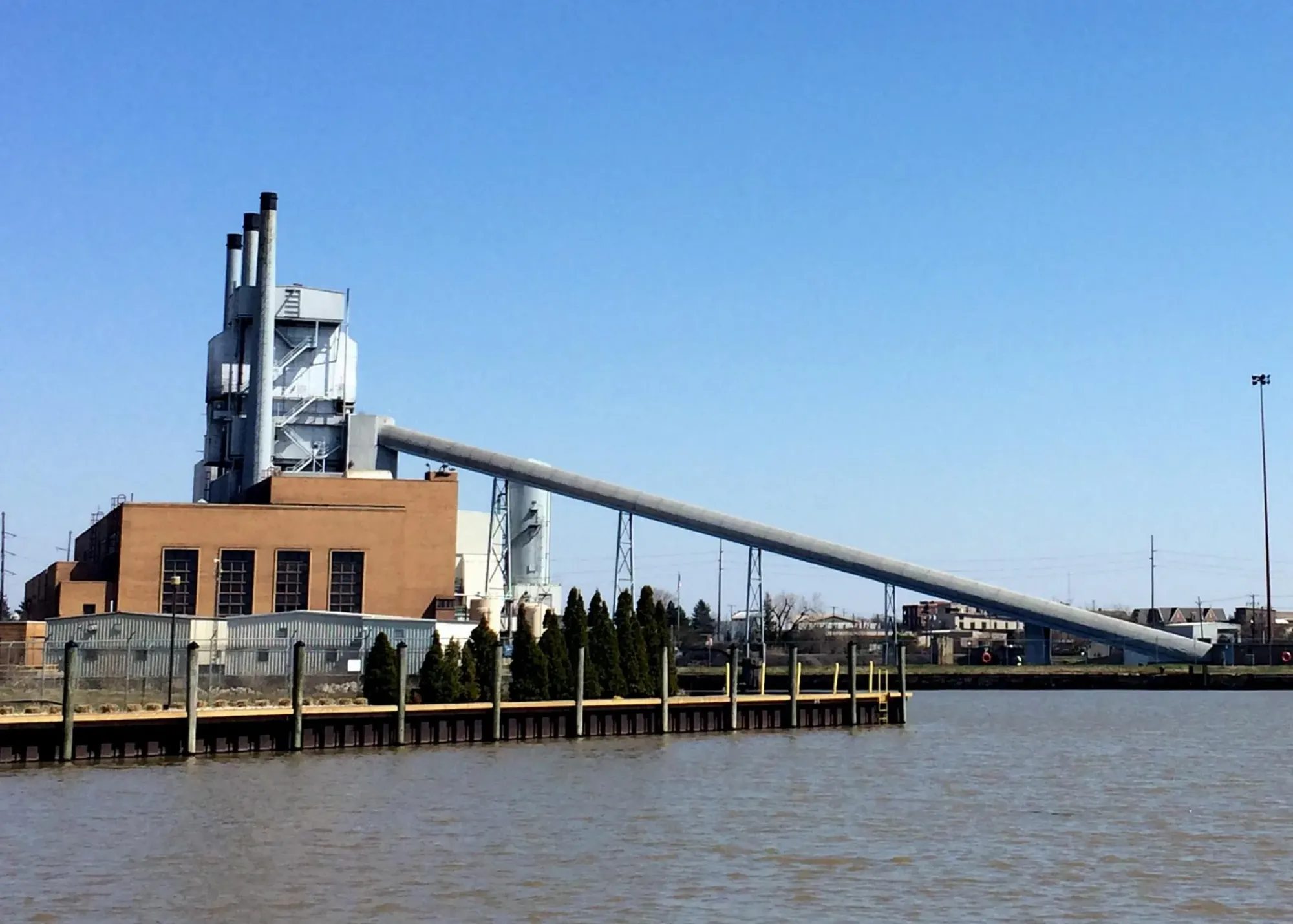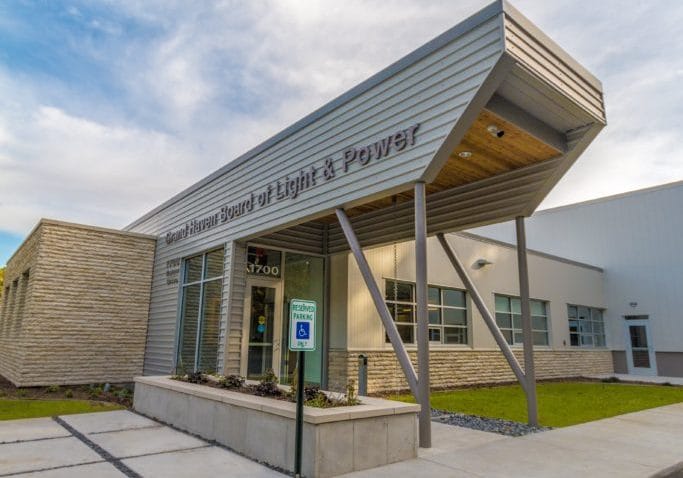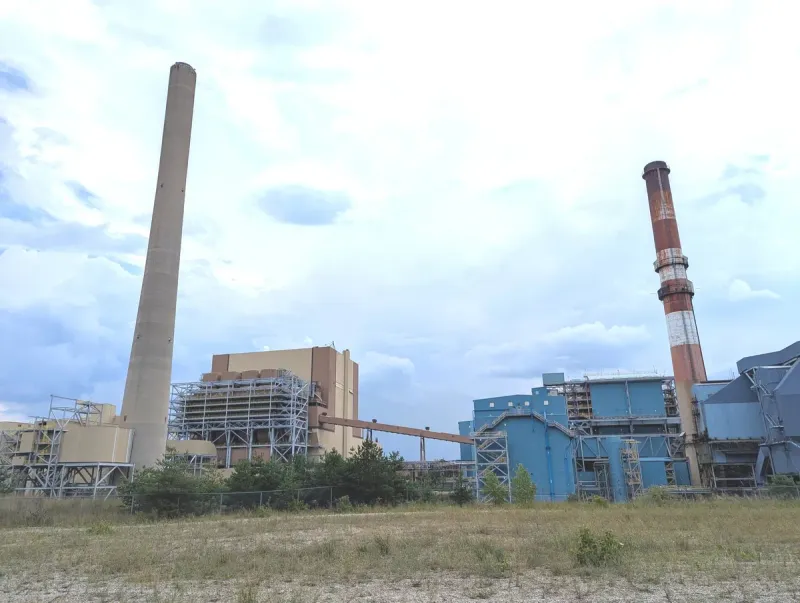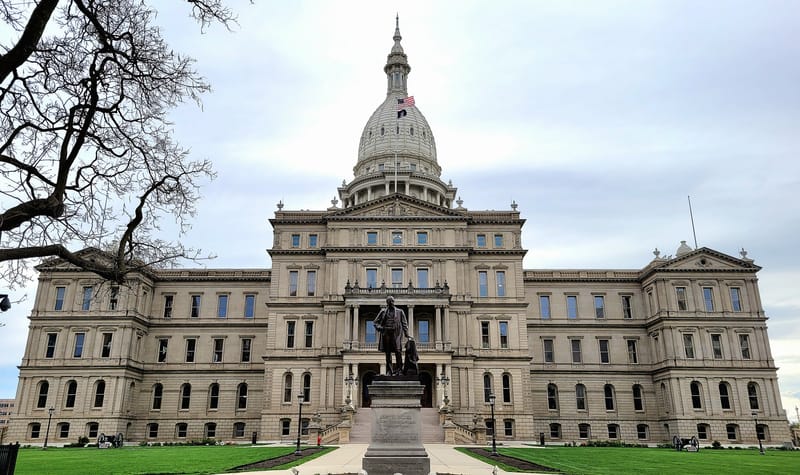EPA awards $500K to Ottawa County to help assess brownfield sites for cleanup
Ottawa County recently received $500,000 in grant funds to focus on brownfield redevelopment sites in Grand Haven and Holland.

OTTAWA COUNTY — Ottawa County recently received $500,000 in grant funds to focus on brownfield redevelopment sites in Grand Haven and Holland.
The Michigan Department of Environment, Great Lakes, and Energy announced the grant as part of a $6.7 million federal investment from the U.S. Environmental Protection Agency announced May 16 to assess, clean up and revitalize contaminated sites across the state.
EGLE said Ottawa County will receive a $500,000 grant for environmental site assessments, cleanup planning and community engagement in Grand Haven and Holland.
Ottawa County was one of 207 communities selected nationwide through a competitive grant process to receive funding from a pool of $224 million for Brownfield Assessment, Revolving Loan Fund, and Cleanup grants.
"We're extremely grateful to receive this funding to jumpstart brownfield development on priority sites within the county," said Agriculture & Economic Resources Coordinator Becky Huttenga.
The funds will be used to conduct 22 Phase I and 12 Phase II environmental site assessments. It will also include grant oversight, cleanup planning and community engagement activities, said Macy Pressley, press officer for the EPA's Region 5 office in Chicago.
"The funds will be used county-wide, with target areas in the cities of Grand Haven and Holland," Pressley said.
Project sites include (but are not limited to):
- The 10-acre site of occuped by the Board of Light and Power in the city of Grand Haven.
- A group of sites on Lake Macatawa’s easternmost shoreline totaling 25 acres — including a 17-acre site of the former James DeYoung coal-fired plant — former manufacturing sites and aggregate storage yards.
Phase I site assessments use existing information to help a community understand the property conditions by examining current and historical uses of the site and potential threats to human health or the environment, according to the EPA. Environmental assessments must be completed or overseen by an environmental professional, which may include a licensed geologist, engineer or site professional.

The Phase II Environmental Site Assessment is recommended if the Phase I assessment results reveal known or potential contamination found on the property. An environmental professional develops a sampling plan to evaluate the potential presence of contamination from hazardous substances and petroleum on the property and determines the sources and exposures. Environmental professionals may also consult with state and tribal brownfield programs regarding required assessment activities, according to the EPA.
Pressley said the sites were chosen largely based on industrial history, blight conditions and potential presence of environmental threats to human health and the environment.
Implementation and oversight of the project, which is anticipated to be Oct. 1 through Sept. 30, 2029, will be led by the Economic Development coordinator for Ottawa County, Pressley said.
The grant recipient will also hire a qualified environmental professional to perform the environmental site assessments, handle cleanup planning and support community engagement activities, she said.
This is the third time the county has received funds for site assessment from the EPA since the Ottawa County Brownfield Redevelopment Authority was first established in 2008, according to a news release.
The county has 24 miles of Lake Michigan shoreline and over 30 miles of the Grand River. Although it boasts a legacy of shoreline commerce and development, it also has a legacy of abandoned, underutilized and sometimes contaminated industrial sites in need of revitalization.
Previous grants that have made a major impact locally include:
- $400,000 in 2013 assisted in 34 different projects and leveraged an estimated $35.6 million worth of investment into brownfield properties.
- $300,000 award in 2020 enabled the county to assist 29 different projects and leverage an estimated $90 million.
"We're extremely grateful to receive this funding to jumpstart brownfield development on priority sites within the County," said Agriculture & Economic Resources Coordinator Becky Huttenga.
There are approximately 140 known contaminated sites in Grand Haven, particularly along the Grand River corridor, and 163 contaminated and blighted properties in Holland, many of which are located along the north and east end of Lake Macatawa, according to the county.
In addition to Phase I and Phase II assessments, a smaller portion of funds are earmarked for general cleanup planning, which includes brownfield redevelopment plans and/or due care and compliance reports or other analyses, according to the county.
How many assessments can be conducted will vary based on the properties selected, but it is estimated that roughly 34 can be funded, the county said in the news release.
"Often the biggest barrier to redeveloping these sites is the unknown costs," said Huttenga. "This grant support will allow us to significantly increase site evaluations, ensuring that developers know what to expect."
Although primarily intended to support sites in the cities of Holland and Grand Haven, the funding may also be used elsewhere following a thorough site selection process overseen by OCBRA. More information on how to access these grant funds will be made available once the grant agreement between the County and the EPA is put in place.
Other Michigan organizations that received grants through the EPA grant project include:
- Cass County: $300,000 assessment grant for environmental site assessments, cleanup planning, and community engagement in Dowagiac and Cassopolis.
- Crawford County: $300,000 assessment grant for environmental site assessments, updating a brownfield site inventory, cleanup planning, and community engagement along the I-75 Business Corridor and Grayling Industrial Park.
- Downriver Community Conference and partners: $1.2 million assessment coalition grant for environmental site assessments, cleanup planning, and community engagement along the Jefferson Avenue Corridor (River Rouge to Trenton) and the Ypsilanti Water Street Redevelopment Area, with partners including the Cities of Monroe and Tecumseh, and Washtenaw County.
- Downriver Community Conference: $2 million to supplement its existing Brownfield revolving loan fund, supporting cleanup projects in Ecorse, Ypsilanti, and Monroe, including the Mill Street and Water Street Redevelopment areas and the former Immaculate Heart of Mary property.
- Marquette County: $400,000 assessment grant for environmental site assessments, cleanup planning, and community engagement in Ishpeming and the Town of Sawyer.
- Michigan Department of Environment, Great Lakes, and Energy: $2 million community-wide assessment grant for environmental site assessments and hazardous building surveys in Saginaw, Ypsilanti, Jackson, and Sault Sainte Marie, with priority sites including the vacant County Fairgrounds and the former Delphi Energy/Chassis facility.
Support Our Work
Ottawa News Network is a nonprofit news service dedicated to providing the residents of Ottawa County with trustworthy, community-driven news. ONN treats journalism as a public good — something that enriches lives and empowers Ottawa County’s 300,000-plus residents to stay engaged, make informed decisions, and strengthen local democracy. Please consider giving today.
About brownfield redevelopment
A brownfield is a property where redevelopment is hindered by real or perceived environmental contamination, blight or functional obsolescence. These hurdles can be costly and often prevent sites from being redeveloped.
Brownfield programs incentivize redevelopment of these sites through various state and federal tools, such as grants to fund site assessments and/or eligible cleanup activities, tax increment financing to offset development costs, and more.
The benefits of redeveloping brownfield properties are many, including:
- Returning problematic properties to the tax rolls
- Attracting developers to brownfields, creating jobs and investment
- Increasing the value of nearby properties
- Reducing sprawl by reusing properties with existing infrastructure
- Cleaning up environmental contamination
About the OCBRA
The Ottawa County Brownfield Redevelopment Authority works cooperatively with all cities, villages and townships in the county to provide access to incentives and support for brownfield redevelopment, particularly for those communities that do not have a local BRA.
The OCBRA meets as needed on the third Thursday of the month at the county administration building in West Olive.
For more information about the brownfield redevelopment or the EPA grant, call OCBRA at 616-738-4852, email plan@miottawa.org, or visit miottawa.org/brownfields.
— Sarah Leach is the executive editor of the Ottawa News Network. Contact her at sleach@ottawanewsnetwork.org. Follow her on Twitter @ONNLeach.





